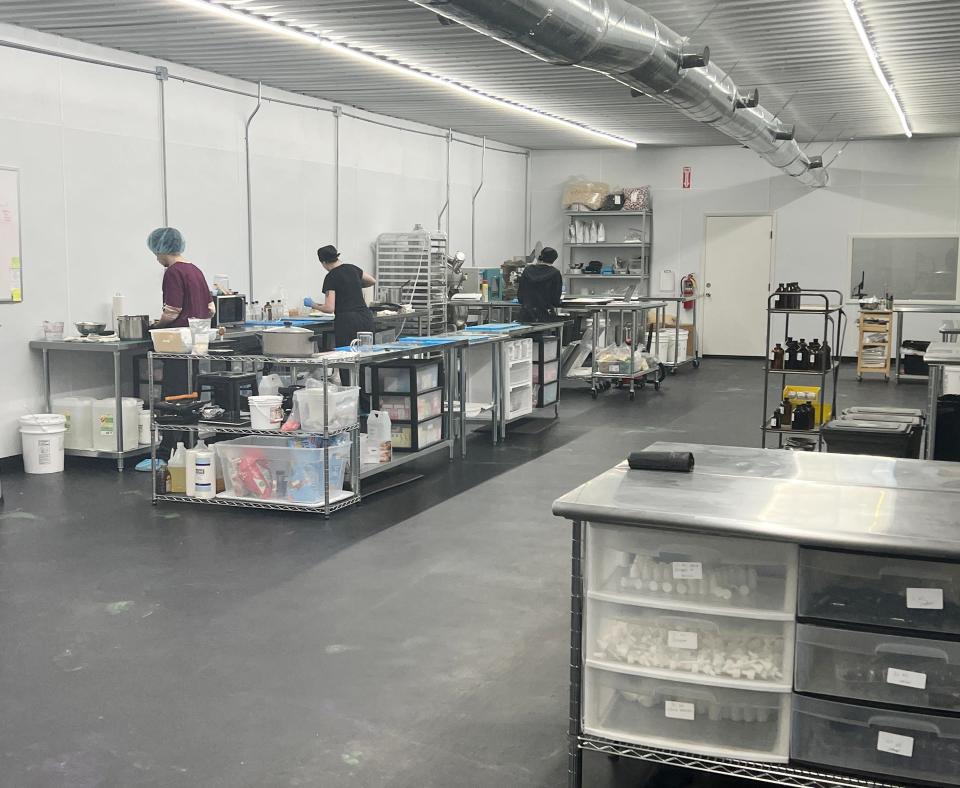Gadsden CBD manufacturer gets temporary restraining order against state health department
A Montgomery County circuit judge on Wednesday halted at least temporarily the Alabama Department of Public Heath’s efforts to stop Gadsden’s Boro Hemp from making CBD and cannabinoid edibles.
Judge James H. Anderson granted a temporary restraining order sought by Boro (specifically TSLT Holdings LLC) against the ADPH and Dr. Scott Harris, state health officer, blocking them from taking action that Boro’s owners say will put them out of business.
Anderson in his order wrote that Boro had demonstrated under Alabama’s code and supporting case law that without the TRO, it would “suffer immediate and irreparable injury for which there is no adequate remedy at law.”

The judge also found that Boro “has at least a reasonable chance of success on the ultimate merits of its case.” He barred ADPH from interfering with the company’s operations until there’s a final judgment in the case and scheduled a hearing for June 6 on its request for a permanent injunction against the health department.
Boro, owned by Stacey Hamilton and Gordon Tinsley, manufactures CBD products at its facility in Alabama City. It has 17 employees and does a $100,000 a month in business, according to its owners, distributing its products in 20 states and through retail sales online.
Following an inspection by ADPH and state Revenue Department officials in January, however, it received two “Food Condemnation Orders” from ADPH directing it to stop making edible products and destroy its existing stock.
The orders collectively stated that it is illegal to manufacture or sell food containing CBD or cannabinoid derivatives in Alabama, as a violation of the department’s Rules for Food Processing Establishment Sanitation; and that Boro failed to obtain a Food Manufacturing Processing Sanitation license from ADPH.
More: Gadsden company says health department's stance on CBD edibles will put it out of business
The health department later expanded the scope of its order to include not just CBD, but edibles with all cannabinoids including Delta-8, Delta-9 and THC.
Edible products, such as chocolates, gummies and lollipops, make up 90% of the company’s business, according to the owners, who say the ADPH’s order would put them out of business and into bankruptcy.
ADPH provided a statement to The Times that cited a public notice, "Guidance on Alabama law regarding the possession, use, sale or distribution of CBD,” for its stance that a “Do Not Sell/Food Condemnation Order” would be issued if food containing CBD was found at an establishment operating under one of its permits. (Customers could add separately purchased CBD to food or drink.)
Alabama Attorney General Steve Marshall’s public notice offers background on Alabama’s marijuana laws and the exemptions granted for people with specific conditions (Carly’s Law for epilepsy, Leni’s Law for seizures); notes that CBD products containing 0.3% or less THC concentration are legal in Alabama; and observes that Food and Drug Administration “closely scrutinizes the legality of CBD products sold or marketed as consumables, dietary supplements or medicines.”
However, Boro’s owners say the Alabama Industrial Hemp Research Act of 2016, which legalized industrial hemp (from which CBD is produced) containing a concentration of 0.3% or less of Delta-9 tetrahydrocannabinols as an agricultural product, to be regulated by the state Department of Agriculture, specifically includes food in its definition of “hemp products.”
The Legislature three years later amended that act to cover all cannabinoid products, and Boro’s owners have cited its efforts to boost the hemp industry in Alabama.
The company had appealed ADPH’s orders, but after multiple delays of a scheduled hearing, Hamilton in an email to The Times last week said it was dropping that appeal, which she said Boro “stood no chance of winning.”
She added, “As this is a fundamental disagreement about the actual rule of law, it is not the type of decision that can be reached in an administrative hearing.”
Christie Knowles, the company’s attorney, said, “We are pleased and encouraged that the court granted the temporary restraining order preventing the Department of Public Health from its continued government overreach.
“We look forward to the preliminary hearing where this small business can receive justice and the protection under the law it deserves,” she said.
An ADPH spokesperson said the department had no comment because “the issue is still in litigation.”
This article originally appeared on The Gadsden Times: Gadsden's Boro Hemp scores legal victory over health department

